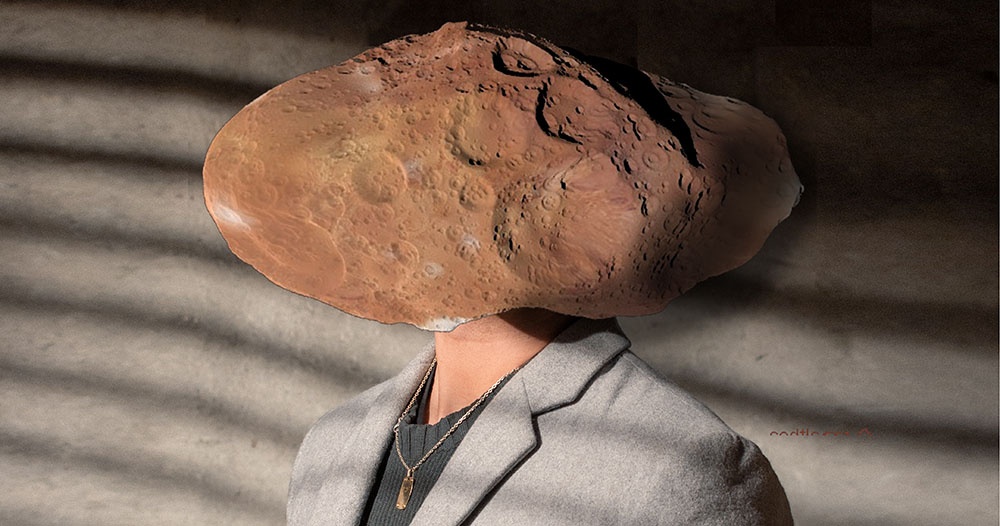The Limerick: A Brief History
One of the first limericks known to man. Note the obscenity in line two.
Sunday, May 12, is National Limerick Day, an event traditionally celebrated by dressing like Edward Lear and rhyming things with Nantucket. But for all the hallowed tradition surrounding this beloved poetic form, most of us know precious little about the limerick and how it became such a popular from of rhymery. So this weekend, while you’re out mailing limerick cards and singing limerick carols and visiting the nuclear power plant in Limerick, PA, take a moment to ponder the storied history of this simple but profound method of expressing life’s truths.
Nobody is sure where or when the first limerick was written. Except scientists, who’ve pretty much narrowed it down to a particularly dusty cave in central Africa. It was there that, early in the 20th century, a team of paleontologists who were considering changing their majors after three straight weeks of scraping for fish fossils in the desert noticed some prehistoric carvings in a rock wall they’d previously urinated on. Several years of analysis produced a loose translation of what it is perhaps the oldest written verse on record:
Ook eek ok arrr grr erk ooka,
Grrr grrk ugh erk eek ug gooka,
Grunt grunt grrr erk
Erg erg grunt gerk
Ooga erk grun snarl grr grooka.
The meaning behind the words remains a mystery despite several dozen research grants, though the term “erk” is believed to be a sexual reference of some sort.
 Oh, yeah, they went there.
Oh, yeah, they went there.
By the dawn of recorded history, mankind had switched from stone to papyrus for keeping records, leaving fewer samples for future analysis. But the popularity of the limerick among the world’s earliest civilizations is evidenced by several examples found on the pyramids and monuments of ancient Egypt, such as this marvelous ditty:
Eyeball bird wheatstalk wavy line,
Bird beetle eyeball guy sitting.
Vase fish bird hand,
Eyeball circle hook,
Guy walking backwards, bird cup.
Certainly as amusing a limerick as any modern effort…”Vase fish bird” indeed.

For centuries, the limerick remained a popular but minor type of poetic expression that resurfaced in many different forms. The Japanese, for example, flirted with it, creating haikumericks such as the one illustrated at left (from Hiroshige’s One Hundred Guys from Edo):
A man, once there was,
From Edo, and well endowed,
Snow falls in bucket.
Yet the limerick seemed destined to remain a trifling diversion…perhaps one destined to vanish from history. And then, after a whole bunch of historical stuff happened that’s not relevant to this discussion, the limerick gained a new lease on life…all thanks to an obscure island off the coast of Massachusetts known as “Nantucket.”
By the mid 19th century, Nantucket’s once-robust whaling industry was in decline. Mainly because the Nantucket whalers never bothered to harvest anything of value from the whales they hunted. “It wasn’t an economic thing for them. They just really, really hated whales,” explains Melvin Mill, chairman of cetoloeconomy at Nantucket Polytechnic University. “By the time they caught on to the idea of whaling for profit, the bottom had already dropped out of the scrimshaw market.”
Scrambling for an industry to base their economy on, the Nantucketers fell back on their island’s second most prominent talent: filthy rhymes created by sailors driven half-mad after a lifetime of drinking saltwater and mistaking manatees for mermaids. Seizing on the limerick like a hagfish on a dead dolphin, the ex-whaling community produced a compilation of limericks, all of which included “Nantucket” in the first line, in the hopes of cornering the lowbrow poetry market. The tome was so filled with obscenities that not only were all copies seized by the U.S. government, the ink was removed from all pages by a reverse printing press and then injected back into the octopi from whence it came. And by Federal law, should a time machine ever be invented, it must be used to prevent the authors of the book from ever being born.

The final line of a limerick from Nantucket’s infamous 1851 publication. (Image courtesy of the private collection of Mr. J. McGurk.)
Nevertheless, The Nantucket Gentleman’s Dear Treasury of Delightful Jocosity, Sponsored by Henderson’s Kerosene Lozenges was extremely popular. So much so that even though no one could possibly buy any copies, it completely undercut sales of Herman Melville’s just-published novel Moby Dick. A typical limerick from the collection:
There once was a EXPLETIVE DELETED from Nantucket
Whose EXPLETIVE DELETED was EXPLETIVE DELETED in a EXPLETIVE DELETED.
So he EXPLETIVE DELETED in a EXPLETIVE DELETED
And the EXPLETIVE DELETED EXPLETIVE DELETED EXPLETIVE DELETED
Said her EXPLETIVE DELETED EXPLETIVE DELETED to EXPLETIVE DELETED EXPLETIVE DELETED EXPLETIVE DELETED EXPLETIVE DELETED EXPLETIVE DELETED EXPLETIVE DELETED kumquat EXPLETIVE DELETED EXPLETIVE DELETED EXPLETIVE DELETED EXPLETIVE DELETED.
Unfortunately for the Nantucket community, they had once again failed to think things through—their assumption that every mention of their town would somehow result in a cash payment proved not to be accurate. But the limerick’s place in the pantheon of western humor was assured, and the beloved rhyming scheme has been taken up by everyone from Edward Lear (whose May 12 birthday has become National Limerick Day) to Edgar Allen Poe to George W. Bush. Limericks have been read from the surface of the moon (NASA has yet to release Buzz Aldrin’s legendary “There once was a lady from Venus” ditty), they’ve been the basis of hip-hop songs (who can forget NWA’s There Once Was A Man Straight Outta Compton?) and they’re used by the Department of Homeland Security to extract valuable information from terror suspects. The limerick is here to stay. Or, as five-time International Limerick Regatta Grandmaster Ephraim “Anapestic” Sanchez might put it:
The limerick blah blah blah blah,
Bleep bloop blip bloopity do.
Yadda whatever,
Something bling blah,
For the love of God please make this stop.

Rick Chillot
RICK CHILLOT is a former baby and current writer and editor at Quirk Books. He has contributed to magazines such as Psychology Today, Parenting, Mental Floss, and Prevention. In his twenty-plus years in publishing he’s interviewed about a jillion scientists and doctors and therefore had no need to consult any of them for this book.


